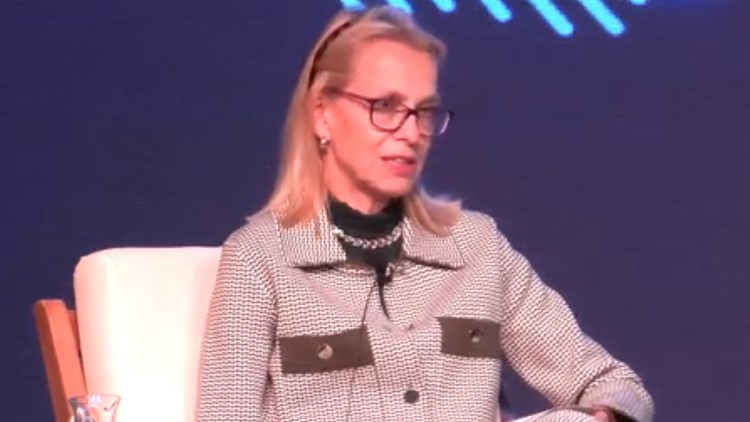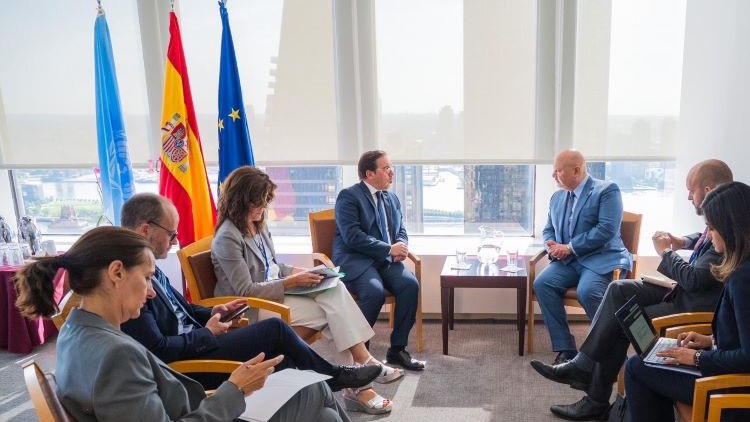The Diplomat
Germany’s ambassador to Spain, Maria Margarete Gosse, advocated this week for a “comprehensive and intertwined” European security pact to address “new security challenges” by enhancing strategic military capabilities and cybersecurity.
“The situation has changed a lot since the bloc policy between the United States and the Soviet Union, and Germany understands that the change of era entails a broad and intertwined security pact to improve our strategic military capabilities, together with NATO,” said the ambassador this past Tuesday during her participation in the debate European strategic autonomy and the Spanish Presidency of the Council of the EU, organized in Madrid by the Ramón Areces Foundation and the Alternativas Foundation.
According to Gosse, strategic autonomy is “a tool to create a more resilient and competitive Europe” at a time when “the geopolitical and geoeconomic challenges, the pandemic and, above all, the Russian aggression in Ukraine and the gas crisis caused by the war, have led us to think that we need a more resilient Europe”.
The ambassador also warned that the EU “must address new security challenges, and implement its strategic compass and define community defense objectives.” “The United States is clear about what they want, and Europe has 27 states that approach security from different angles, because the threat of war in the Baltic is not the same as in Portugal, and we have to bring all the concerns together in one document to define the objectives, and strengthen our resilience and our cybersecurity,” she added.
At the event, held da on September 18-19 in the auditorium of the Ramón Areces Foundation, several experts addressed the importance of the EU’s strategic autonomy an issue that is among the priorities of the Spanish Presidency of the EU Council and first emerged in the text on Global Strategy for the EU’s Foreign and Security Policy presented on June 29, 2017 by the then High Representative and Commission Vice President Federica Mogherini to the European Council.
Originally, the idea of strategic autonomy referred to the security and defense sphere, with a view to strengthening the EU’s ability to provide its own response to crises such as Libya or Crimea and to make the Union a global player. The concept was extended to other areas (industrial or health) in view of the shortcomings highlighted by COVID-19, particularly the difficulties in supply chains, and the obstacles to responding in the energy and technological fields to the consequences of the war in Ukraine.
In addition to the German ambassador, other participants in the debate included Ángel Bergés, vice-president of Analistas Financieros Internacionales (AFI); Alejandra Kindelán, president and CEO of the Spanish Banking Association (AEB); Raquel Jorge, expert in international politics and technology at the Elcano Royal Institute; Daniel Calleja, director general of the Legal Service of the European Commission; Gonzalo León Serrano, professor emeritus at the UPM and vice president of the Fundación Círculo de Tecnologías para la Defensa y la Seguridad; Cristina Puente, computer engineer and professor at the Universidad Pontificia Comillas ICAI; José María Beneyto, professor of International Law and director of the Real Instituto de Estudios Europeos; and Ruth Ferrero Turrión, professor of political science and European studies at the UCM.







